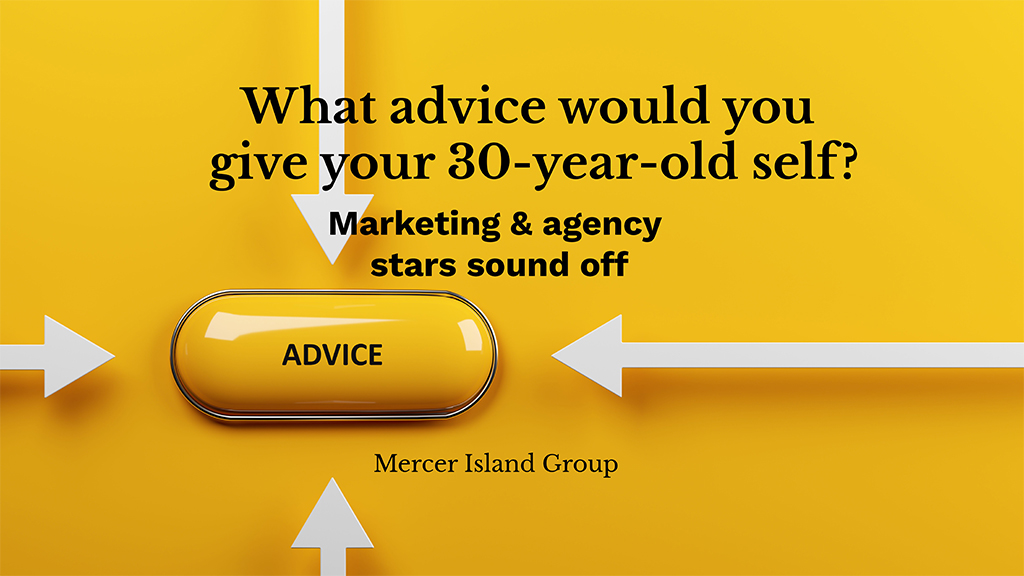Senior leadership and younger staff can have a very different view of the world.
Execs early in their career often want to make their mark and can be nervous about proving their worth.
Successful senior execs often have learned they are worthy and don’t need to prove it. They have learned what they need to worry about as well as what they don’t. They’ve learned that winning the race isn’t necessarily what it is cracked up to be.
The worldviews of these two groups can be quite different! Given that difference, we asked several incredibly successful senior execs a simple but profound question:
Knowing what you know now, what advice would you give to your 30-year-old self?
Here’s what they said.
Knowing what you know now, what advice would you give to your 30-year-old self?
I’d tell my younger self to keep focused on the long term. Don’t get complacent with the good times and definitely don’t lose confidence during the rough patches. You’ll see that over the long term what really matters is that you are proud of your work and grateful for the people you’ve surrounded yourself with over your career.
Be patient; pace yourself. Don’t be too harsh and too critical of others and of yourself. Diversity starts with being more tolerant, more understanding, and less judgmental. Beware of limiting beliefs, don’t be self-conscious of who you are and your accent, and be your authentic self unapologetically.
Get experience working in sales. In my most recent gig before Intel, I ran a global sales team. And carrying a bag gives you real laser focus on what matters in marketing and what’s bullshit and helps you cut past the BS. And then I think it also gets your clock speed going like, “holy smokes, it’s really hard to close a sale.” And when there’s competition coming in with something you haven’t planned for. Marketers think in years and salespeople think in quarters and if a marketer is not in tune with sales, then they’re not in tune with the CRO, who is one of their core constituents and they’re probably not in tune with the head of the business unit they’re supporting and it means you’re going to get taken out eventually. So, my advice is to go carry a bag. It’s a ton of fun.
Sales experience will make you a better partner with your peers. The three-legged stool to me is the business unit general manager, the VP of sales, and the key marketer. As a marketer I spend equal amounts of time with both the GM and the VP of Sales. And the three of us spend quality time together and that makes a huge difference. You’re not slacking and skyping, you’re not Zooming, you’re not reading emails. It’s having those conversations where you go, “What’s going on with the business? What’s wrong?” And figuring out how do we tune and tweak and go.
One other piece of advice for 30-year old Tim would be to get both B2C and B2B experience. Make sure you’ve got experience in both camps because everybody thinks they’re so different and they’re not. But regardless of similarities, I think you learn different lessons and you can apply them back and forth. But I think being a good B2C marketer makes you much stronger at messaging than B2B. Being a B2B marketer I think forces you to think much more through the sales process and along KPIs that are more about managing a sales funnel that I think probably make you a more effective consumer marketer. I think marketers would benefit from both kinds of experiences.
